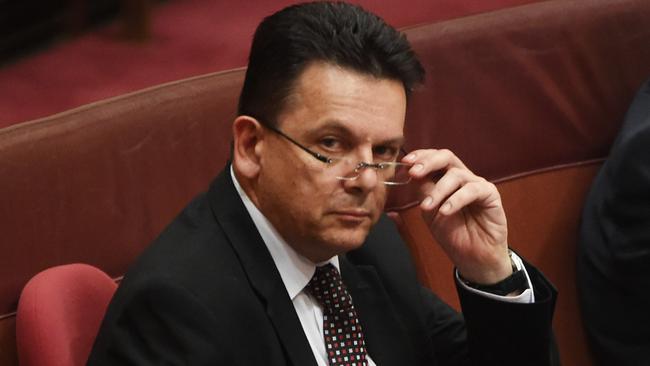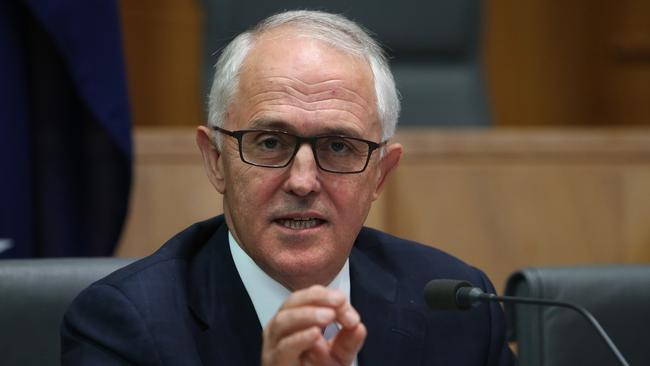Senator Nick Xenophon backs Emissions Intensity Scheme as he declares energy policy his No.1 priority next year
POWERBROKER Senator Nick Xenophon has declared energy policy his No.1 priority in parliament next year, stridently backing the Emissions Intensity Scheme ruled out last week by Malcolm Turnbull.
SA News
Don't miss out on the headlines from SA News. Followed categories will be added to My News.
- Carbon pricing: States could go it alone on carbon
- EIS pushed for Australia’s struggling electricity market
- Eight options to fix South Australia’s unreliable electricity system
POWERBROKER Senator Nick Xenophon has declared energy policy his No.1 priority in parliament next year, warning the Federal Government he will be a “pesky, persistent bastard”.
He has stridently backed the Emissions Intensity Scheme ruled out last week by Prime Minister Malcolm Turnbull.
“High energy prices and lack of (energy) security is killing the state. It will drive businesses and jobs away,” Senator Xenophon said.
“The Federal Government cannot sit on their hands. An EIS is the only credible way to have secure, reliable power at lower prices and meet our emissions reductions targets we signed up to under the Paris agreement.”
Senator Xenophon said the State Government was not blameless either, having “put too many eggs in the wind-farm basket” without ensuring it would not affect stability or price.

The nation’s leaders met last Friday to discuss an interim report from Chief Scientist Dr Alan Finkel on energy security, which cited research backing the introduction of an EIS.
Research from the Australian Energy Market Commission showed that an EIS could reduce power prices by 6 per cent between 2020 and 2030.
An EIS sets a baseline for allowable tonnes of CO2 output per megawatt hour of electricity.
Any generators producing lower emissions earn “credits” which could be sold to those which producing CO2 above the baseline. The Government would not collect revenue from such a scheme.
Last Wednesday, Mr Turnbull ruled out imposing EIS following a backbench revolt over a review of climate change policy which Environment Minister Josh Frydenberg had said would consider such a scheme.
Senator Xenophon said he and Mr Turnbull proposed an EIS in 2009 when they commissioned Frontier Economics to design an alternative to former prime minister Kevin Rudd’s carbon pollution reduction scheme.
“The Government has as much spine as jellyfish on this issue,” Senator Xenophon said of the backflips.
“The resistance to this is just bizarre. The Federal Government will know I’ll be a pesky, persistent bastard on this.”
Senator Xenophon has shown his willingness to use his Xenophon Team power bloc – which has been essential for the Government to pass legislation – to make deals on his own policy priorities.

The Australian Energy Market Operator yesterday released a third preliminary report into September’s statewide blackout in which it acknowledged being in the dark about wind farm settings which caused them to switch off during the storm.
Responding to that report, which he branded a “160-page confession that AEMO was clueless and incompetent”, Senator Xenophon called for the Finkel review to be widened to include the role of AEMO and whether it had fulfilled its responsibilities.
SA Energy Minister Tom Koutsantonis said the problem facing the state’s energy system was the fact that nearly 3000MW of gas-fired generation was often not up and running.
“That’s why it’s important to have an EIS where you can have a lot more baseload (gas) generation incentivised to come on,” he said.
Mr Frydenberg agreed that the report highlighted the importance of more gas supply.
But he said state-based renewable energy targets were the cause of energy price and security problems.


